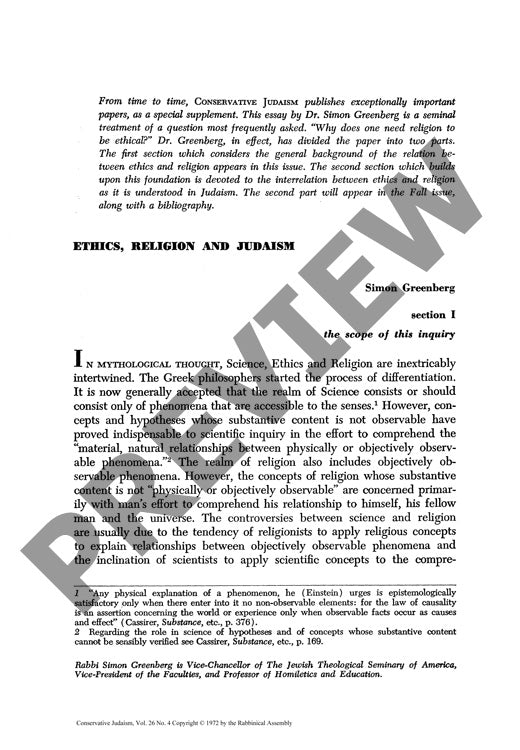Ethics Religion and Judaism Part I
Couldn't load pickup availability
The ancient question of whether humans need religion to be ethical takes on new urgency as secular worldviews proliferate in modern societies. By examining the distinct categories of ethical intentions (advancing others' welfare without personal cost), moral intentions (benefiting others while risking self-sacrifice), and unethical intentions (impairing welfare), a philosophical analysis reveals critical gaps in secular approaches to morality. While secular frameworks based on sensory phenomena and human reason can explain basic ethical behavior through social contracts and deterrence, they falter when confronting acts of profound moral sacrifice. "Enlightened self-interest" fails to rationalize heroic or compassionate actions that require individuals to surrender their own wellbeing for others - creating what emerges as a "supreme riddle" for agnostic perspectives. The investigation demonstrates that religious frameworks, by incorporating transcendent elements beyond pure reason, offer more complete explanations for both everyday ethical choices and extraordinary moral acts involving self-sacrifice, compassion, and love. These findings suggest that religion provides essential philosophical scaffolding for humanity's highest moral achievements, even as secular systems adequately support routine ethical behavior.

More Information
-
Physical Description
-
Publication Information
Published 1972
ISBN
-
Publication Credits
Simon Greenberg

